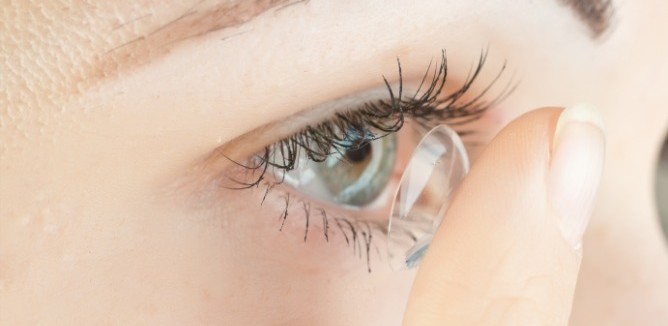The U.S. Food and Drug Administration recently gave clearance to an Israeli-developed contact lens used to treat corneal edema, a painful eye condition commonly caused by eye surgery, trauma, or aging. The edema (swelling) causes the cornea to lose its transparency, affecting vision and leading to irreversible scarring of the cornea.
Israeli startup EyeYon Medical‘s disposable contact lens, Hyper CL, relieves pain by extracting fluids via osmosis and smoothing the surface of the cornea, thus improving vision and keeping the surface of the eye covered to protect from infection.
“Today only about five percent of medications for treating the eye actually reaches its target and has any efficacy. Our contact lenses enable it to be administered for a longer period than putting medicine into the eye,” said CEO Nahum Ferera.
Before Hyper CL, there was no effective way to relieve symptoms of the condition – which can be cured only with a donor cornea from a deceased person.
“The wait for corneal transplants is at least a year here in Israel, and it varies around the world. Meanwhile, those patients are quite miserable since they don’t see in the affected eye, and they suffer severe pain. Patients have to come to the doctor week after week for treatment [with medicinal eye drops], which is not very effective,” EyeYon CEO Nahum Ferera said.
In 2013, after clinical trials were conducted on more than 30 patients at Kaplan Medical Center in Rehovot, Ferera told ISRAEL21c that the lens was “an elegant solution.”
“If a patient could see two meters before, after 24 hours of wearing the lens he could see seven meters. And for most patients, the moment they put the lens on they felt pain relief,” he said, adding that some of the patients in the study even thought to put off their scheduled cornea transplant surgery because the EyeYon lenses were so effective.
In the United States, about 12 percent of the 3.5 million cataract surgeries every year result in temporary corneal edema, and 1% of those cases become chronic. Corneal edema can also be caused by trauma, aging, infection, corneal disease, or a genetic defect known as Fuches Dystrophy.
EyeYon plans to market its lenses, which have a price tag of $50 each, in the United States beginning in 2017.
(Via Israel21c)
[Photo: Israel21c ]




